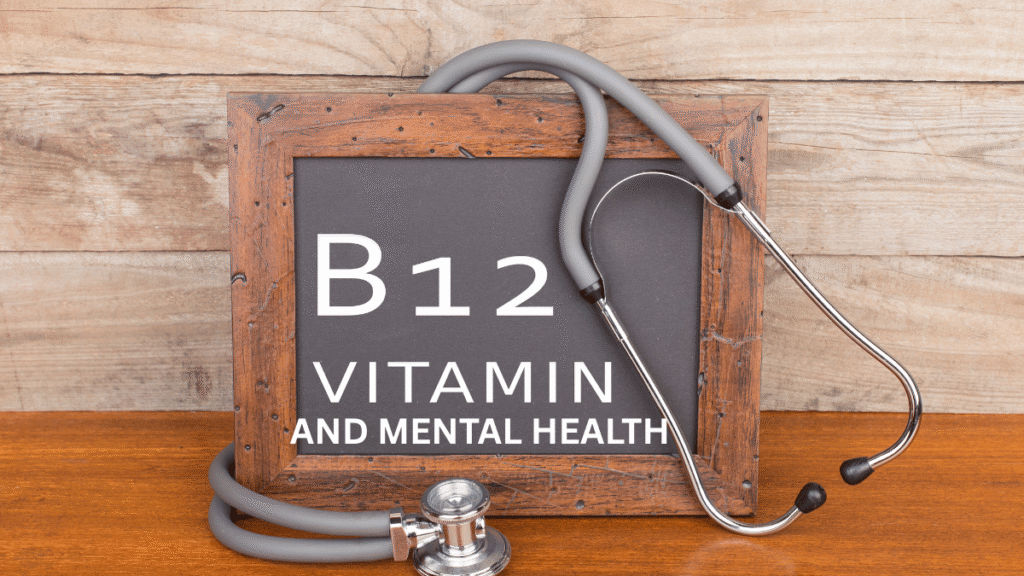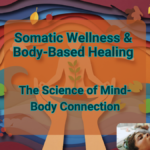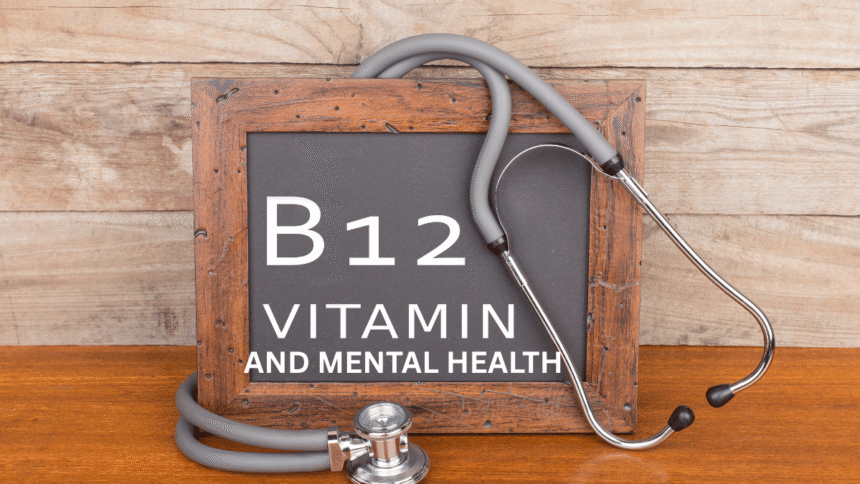Vitamin B12 and Mental Health: Your Essential Guide to Mood, Memory, and Deficiency
Have you been feeling unusually tired, anxious, or forgetful lately? It might not just be stress — your brain could be signaling a Vitamin B12 deficiency. This essential nutrient plays a vital role in maintaining mental clarity, emotional balance, and healthy nerve function. Let’s dive into how Vitamin B12 and mental health are deeply connected, and what you can do to keep your mind and mood in top shape.

🧠 The Crucial Role of Vitamin B12 in Brain Function
Vitamin B12 — also known as cobalamin — is a water-soluble vitamin crucial for the nervous system, brain function, and DNA synthesis.
One of its primary roles is supporting the formation of myelin, the protective sheath around nerves that ensures smooth communication between brain cells. Without enough B12, these nerve pathways become damaged, leading to symptoms like confusion, forgetfulness, and mood disturbances.
B12 also helps in the production of neurotransmitters such as serotonin and dopamine — the “feel-good” chemicals that regulate your mood, motivation, and emotional stability. A deficiency here can easily translate into anxiety, low mood, and fatigue.
In short: B12 keeps your brain cells healthy, your mood stable, and your mind sharp.
📉 Are You Deficient? Recognising Mental Health Symptoms of Low B12
Low B12 levels often creep up silently, showing subtle signs before turning serious. Many mental health issues may actually be linked to B12 deficiency mental symptoms.
Common symptoms include:
- Persistent fatigue or lack of motivation
- Depression or feeling “emotionally flat”
- Anxiety, panic, or irritability
- Brain fog — poor focus or memory lapses
- Tingling or numbness in hands and feet (nerve damage)
- Difficulty concentrating or processing information
In severe cases, long-term deficiency can even mimic dementia-like symptoms due to impaired nerve signaling and brain atrophy.
If these signs sound familiar, it’s worth discussing with a healthcare professional for proper testing.
🍎 How to Get Enough B12: Dietary Sources and Supplementation
Your body doesn’t make B12 on its own — you must get it from your diet or supplements.
🥩 Animal-Based Sources (Rich in B12)
- Meat: Beef liver, chicken, fish (salmon, tuna, sardines)
- Dairy: Milk, cheese, yogurt
- Eggs: Particularly the yolk
🌱 Vegan or Vegetarian B12 Sources
Plant-based eaters are at higher risk of deficiency, but there are solutions:
- Fortified foods (nutritional yeast, plant milks, breakfast cereals)
- B12 supplements (check for methylcobalamin — the most bioavailable form)
Tip: If you follow a vegan diet, it’s recommended to take a B12 supplement regularly. Even mild deficiencies can affect your mood and mental clarity over time.
🛡️ Beyond Mood: B12’s Impact on Memory and Cognitive Health
Vitamin B12 is not just about boosting energy — it’s also a key player in long-term brain health.
Studies show that low B12 levels are linked with:
- Memory loss and cognitive decline
- Alzheimer’s-like symptoms
- Slower learning and processing speed
Adequate B12 supports brain cells by lowering homocysteine levels, a compound that can damage neurons when elevated. This is why maintaining proper levels of both B12 and folate (Vitamin B9) is essential for healthy cognitive aging.
Maintaining good B12 levels is like giving your brain a daily tune-up — improving memory, alertness, and focus.
🛑 When to See a Doctor: Testing and Treatment for B12 Deficiency
If you suspect low B12, don’t self-diagnose — the symptoms often overlap with other mental health conditions.
A simple blood test can confirm your B12 status. Depending on the results, your doctor may recommend:
- Oral B12 supplements (methylcobalamin form preferred)
- B12 injections for rapid correction (especially in severe deficiency)
- Dietary adjustments to include more B12-rich foods
Persistent mood swings, memory loss, or unexplained anxiety could indicate a deeper nutritional issue.
👉 Consult a qualified healthcare professional like Dr. Milind Kumavat — an expert in holistic and mind-body health — for personalised assessment and guidance on restoring your B12 balance naturally.
🌟 Key Takeaways
- Vitamin B12 is essential for mental health, mood, and memory.
- Deficiency can lead to depression, anxiety, brain fog, and cognitive decline.
- Include animal foods, fortified options, or supplements to maintain optimal levels.
- Regular testing and early treatment can reverse most symptoms and protect long-term brain health.











